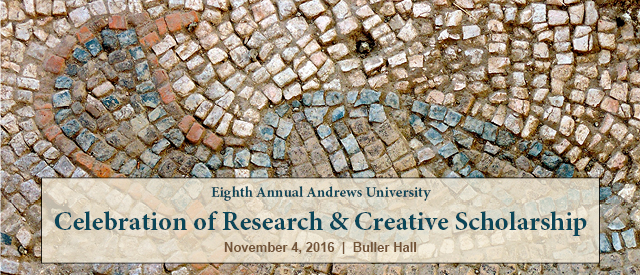P-25 Stabilization of Aqueous Ascorbic Acid Solutions Using PAMAM Dendrimers
Presenter Status
Associate Professor of Chemistry, Department of Chemistry & Biochemistry
Second Presenter Status
Professor of Chemistry, Department of Chemistry & Biochemistry
Third Presenter Status
Research Assistant, Department of Chemistry & Biochemistry
Preferred Session
Poster Session
Start Date
4-11-2016 2:00 PM
End Date
4-11-2016 3:00 PM
Presentation Abstract
Ascorbic acid, also known as vitamin C, is an effective antioxidant and an essential human enzymatic cofactor. Ascorbic acid is unstable in aqueous solution and degrades readily upon exposure to air and UV light. PAMAM (polyamidoamine) dendrimers were evaluated to stabilize dilute aqueous ascorbic acid solutions. UV-Vis absorbance spectroscopy was used to measure ascorbic acid degradation over a period of four hours, with and without the dendrimer and at varying pH values. Our data shows that PAMAM G2-Amine dendrimers significantly slow ascorbic acid degradation especially near physiological pH which demonstrates these nanopolymers as an effective platform for Vitamin C stabilization.
P-25 Stabilization of Aqueous Ascorbic Acid Solutions Using PAMAM Dendrimers
Ascorbic acid, also known as vitamin C, is an effective antioxidant and an essential human enzymatic cofactor. Ascorbic acid is unstable in aqueous solution and degrades readily upon exposure to air and UV light. PAMAM (polyamidoamine) dendrimers were evaluated to stabilize dilute aqueous ascorbic acid solutions. UV-Vis absorbance spectroscopy was used to measure ascorbic acid degradation over a period of four hours, with and without the dendrimer and at varying pH values. Our data shows that PAMAM G2-Amine dendrimers significantly slow ascorbic acid degradation especially near physiological pH which demonstrates these nanopolymers as an effective platform for Vitamin C stabilization.




Acknowledgments
Office of Research and Creative Scholarship